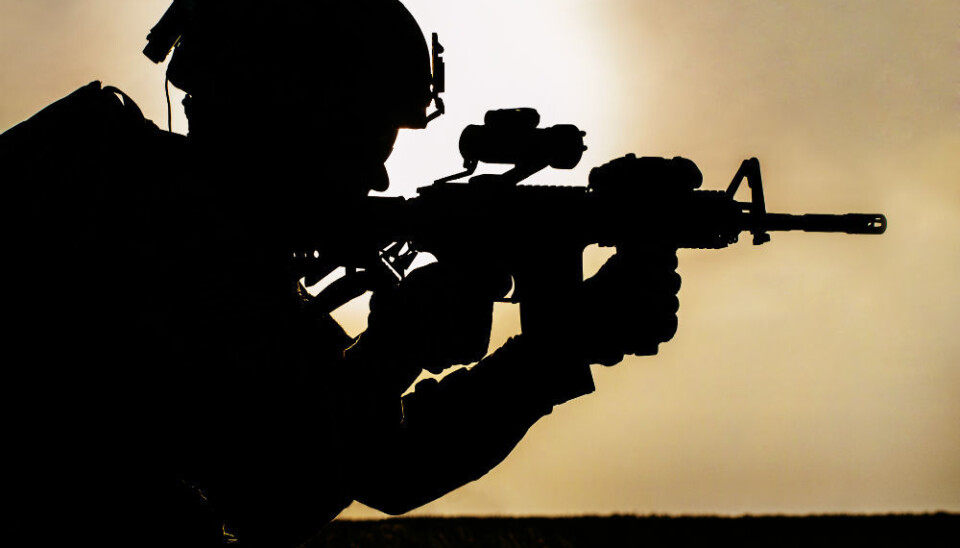An article from University of Oslo

Lawful casualty or victim of a war crime?
International law protects fighters and civilians differently. Establishing who has been a victim of a war crime and who has been a lawful casualty of war is not always easy.
In her new book Joanna Nicholson, Postdoctoral Fellow at University of Oslo, investigates how some international criminal courts have untangled those who were legitimate military targets from those who were victims of international crimes.
As part of her research, Nicholson clarifies how the act of fighting can make a difference in the context of when an individual can qualify as a victim of an international crime.
Nicholson explains that courts have not always been as careful as they should be at determining whether a particular individual was a lawful casualty of war rather than a victim of a war crime.
The researcher has chosen to emphasize crimes that can be committed against two specific groups: child soldiers and peacekeepers.
Child soldiers
In recent decades, child soldiers have become a regular feature of some armed conflicts.
Children are appealing to some armed groups as their youth can make them easier to manipulate and more fearless than adults. They can be used for a wide variety of tasks: as bodyguards; domestic help; sexual slaves; food gatherers, as well as being directly involved in fighting.
The recruitment and use of children under the age of fifteen to participate actively in hostilities, is recognized as a war crime under the Rome Statute of the International Criminal Court. This prohibition applies to both governmental groups and non-state armed groups.
Still a legitimate target
However, the idea that childhood ends at a certain age is primarily a western construct, Nicholson points out. Other cultures may use different milestones for determining when adulthood has been reached. For example the fact that a particular child can handle a weapon. Nicholson explains that cases from international criminal courts have been helpful in publicizing the international crime of the recruitment and use of children under the age of fifteen.
“Although only a few cases have been brought before international courts, they have helped spread the message that the recruitment and use of children under fifteen in armed conflicts is a war crime,” says Nicholson.
Nicholson also highlights that even though the recruitment and use of children under 15 is a war crime, when children are used by armed groups to directly participate in hostilities, for example, if they actively take part in a battle, it is not a war crime for the opposing forces to attack them.
According to international law, the child soldiers continue to be a legitimate military target despite their age.
Peacekeepers
Peacekeepers are civilians and are protected from attack. They are, however, often placed between warring parties.
Although their mission is to help the peace process in war-torn countries, they unfortunately can themselves become the victims of attacks. Recently 14 UN peacekeepers were killed in the Democratic Republic of Congo by Islamic extremists.
“Peacekeepers are mandated to maintain or restore international peace and security. They serve under the banner of the United Nations, and as such they represent the global community. Crimes against them merit special attention by international criminal courts,” Nicholson says.
Peacekeepers can lose their civilian protection
Targeting peacekeepers constitutes a crime under international criminal law. However, when considering attacks against peacekeepers, international criminal courts have to be careful to ensure that the peacekeepers’ actions have not made them lose their civilian protection.
This occurs through the peacekeeping force being drawn into the conflict and becoming a party to the conflict; or through individual peacekeepers acting beyond the limits of self-defense.
Once civilian protection is lost, attacks against peacekeepers may be lawful acts of war rather than war crimes. International criminal courts have to be careful to assess whether in the circumstances of a particular case, the peacekeepers have retained their civilian protection.
Nicholson argues that fighting can have implications for victimhood and she hopes that her research will help guide international criminal courts in future cases.






























